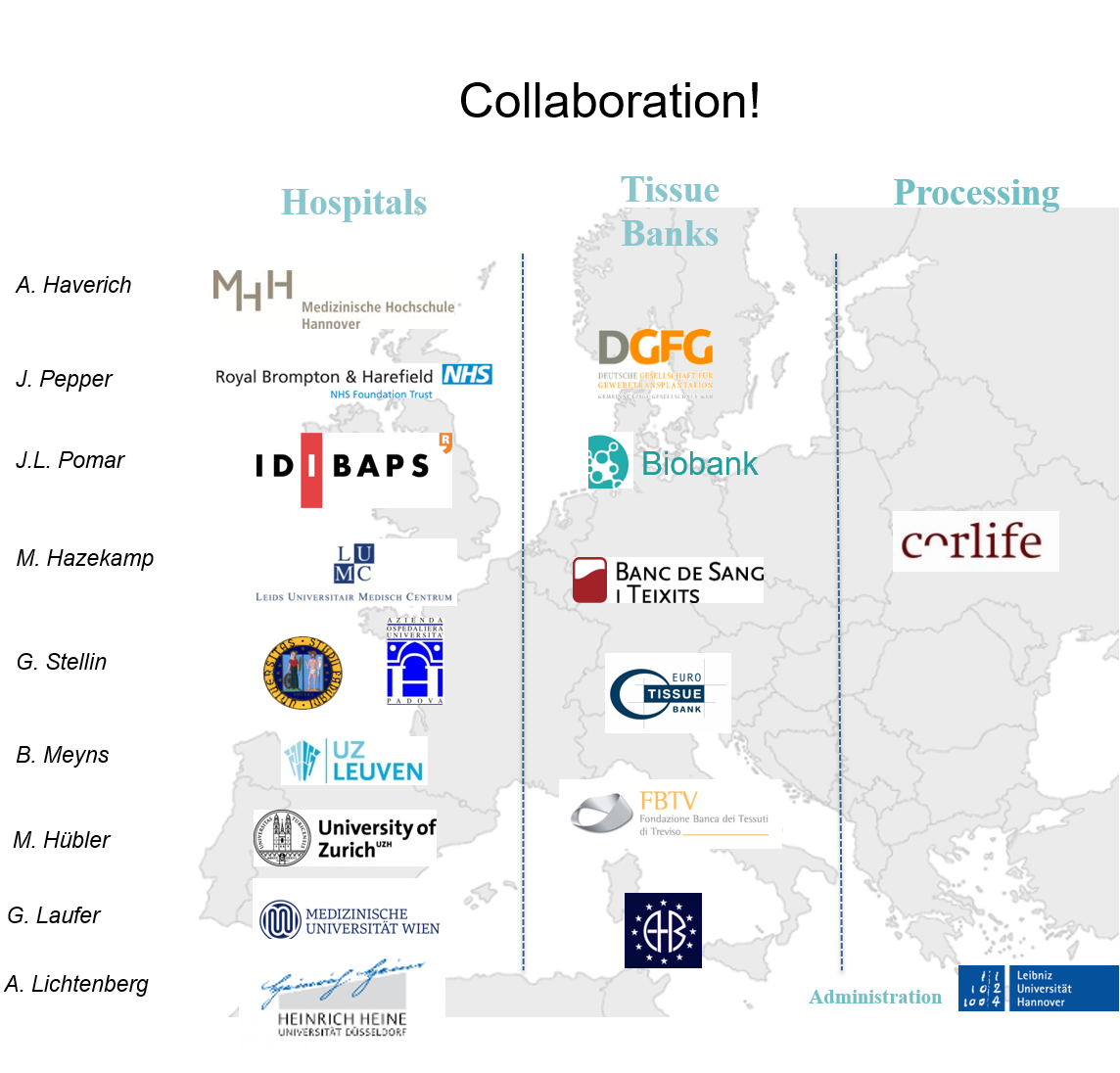Project Summary
Young patients with severe aortic valve disease today are facing a real dilemma. Once the indication for aortic valve replacement (AVR) has been confirmed by their physician, one of the options they can choose is a mechanical valve replacement, which directly affects their quality of life as strict life-long blood anticoagulation is needed. These “blood thinners” have an inherent risk for severe bleeding episodes, which needs to be considered in both professional and leisure activities. Biological heart valve prostheses as another option unfortunately do degenerate much quicker in young patients. The Ross autograft procedure, as another option for aortic valve replacement in young patients, is a very complex surgical procedure which has the disadvantage of creating a “two-valve disease” as the patient`s pulmonary valve, which replaces the diseased aortic valve has to substituted by another heart valve prosthesis itself.
The lack of reasonable aortic valve prostheses for young patients has driven research in tissue engineering concepts. The basis for current tissue-engineering concepts are either artificial polymeric or biological scaffolds, which may derive from human tissue donation or animals. Total artificial tissue-engineered heart valve concepts would solve many unmet clinical demands such as permanent availability of different sizes and lengths. However, long-term animal models have not delivered satisfactory results so far due to the lack of mechanical stability of the total artificial matrices, leading to early failure of valvular function. Tissue-engineered biological scaffolds of porcine origin have failed dramatically in a number of paediatric patients, resulting in cautious scepticism regarding animal-derived matrices. In contrast, decellularized matrices based on non-cryopreserved human valves, which formed the basis for ARISE, have provided initial auspicious clinical results, which warranted further prospective clinical research.
The project’s objective was therefore to determine the feasibility, safety and efficacy of decellularized regenerative heart valves for aortic valve replacement. The ARISE consortium comprised six leading European centres for cardiac surgery (Hannover Medical School, Royal Brompton and Harefield National Health Service Trust, August Pi i Sunyer Biomedical Research Institute and the Hospital Clinic of Barcelona, Leiden University Medical Centre, Padua University and the Azienda Ospedaliera di Padova Clinical Center, University Hospitals Leuven) and the innovative small enterprise corlife oHG, that processed the valves. Project management for the study and support regarding ethical issues was organized by the Leibniz University Hannover.
Within the ARISE clinical trial a total of 144 patients were treated with decellularized aortic homograftes (DAH). The initial results of the prospective multi-centre ARISE trial proved DAH as safe for AVR with excellent hemodynamics in the short follow-up available. Early DAH results compared well with the early outcome of contemporary Ross-operation cohorts despite more than twice the amount of previous cardiac procedures in the DAH patients.
At the start of the project a robust governance structure ARISE was established including the implementation of a Data Safety Monitoring Board (DSMB) and an external Ethics and Governance Council (EGC) to provide independent supervision and advice. The Leibniz University Hannover liaised closely with the EGC to ensure good collaboration and to generate new knowledge on ethics, legal and social issues in regenerative medicine. An Ethics and Governance Framework was established, giving advice and guidelines on how to deal with important ethical aspects of the project.
Corlife oHG received approval of the decellularized human aortic valve, Arise AV by the Paul Ehrlich Institute (PEI) in Germany (the medical regulatory body and the German federal institute for vaccines and biomedicines) on 14th July 2015. After approval the ARISE study protocol was handed in at the European Network of Centres for Pharmacoepidemiology and Pharmacovigilance (ENCePP), a network coordinated by the European Medicines Agency (EMA), that aims to strengthen the monitoring of the benefit-risk balance of medicinal products in Europe. The study was accepted and received the ENCePP seal on 29th July 2015.
The ARISE clinical study started on 24th September 2015 when the first patient was operated by a team of surgeons at Hannover Medical School. Trial data and data from patients operated outside or before the clinical study was incorporated into the established ARISE Registry database infrastructure.
As aortic valve replacement is the most frequently performed valve operation, a reduced reoperation rate would have relevant impact on direct and indirect health costs. If the mean time to reoperation, which is currently 8-10 years for biological prostheses, could be expanded by the use of decellularized heart valves to at least 15(-20) years, the reoperation rate would be halved. As nearly every tenth heart valve operation is a ‘redo’ operation, this would lead to enormous direct cost reduction given the high numbers (65,000 per year) of heart valve operations in the EU.
Early data of the ARISE trial and ARISE Registry data show very auspicious results, which match and surpass the results of the current gold standard for young patients, the Ross-procedure. To confirm these results, Corlife and Hannover Medical School are focused to enable an at least 10-(20)year follow-up of all DAH patients and to provide the funding needed for such long-term follow-up.
To date, regenerative medicine, which by nature involves human tissue or cells, is limited within Europe by a number of individual national legislations, which complicates the development of an industry sector in European regenerative medicine. The ARISE project may serve as a flagship project for this industry sector, as these trans-national barriers are addressed during the study initiation phase. This will facilitate faster approvals for future European clinical trials in this field, thereby directly supporting small start-up companies, which are today faced with time-consuming and cost-intensive applications to multiple national authorities. Reimbursement for regenerative therapies based on human tissue or cells is crucial for the survival of these enterprises and European-wide consensus is needed to allow for a reasonable and fair industrial profit. The fast approval of the ARISE valve by PEI already shows, the first impact ARISE and its predecessor study ESPOIR have had in this regard.

Copyright © ARISE Hannover - Germany 2024 MH Hannover All rights reserved. | Impressum & Datenschutz
